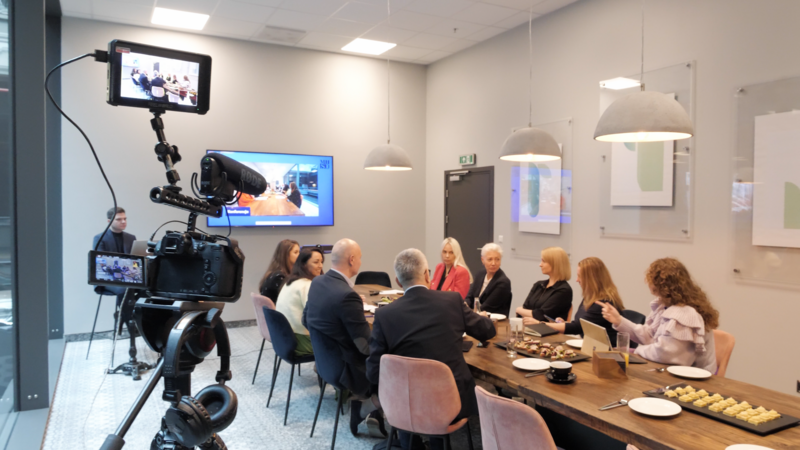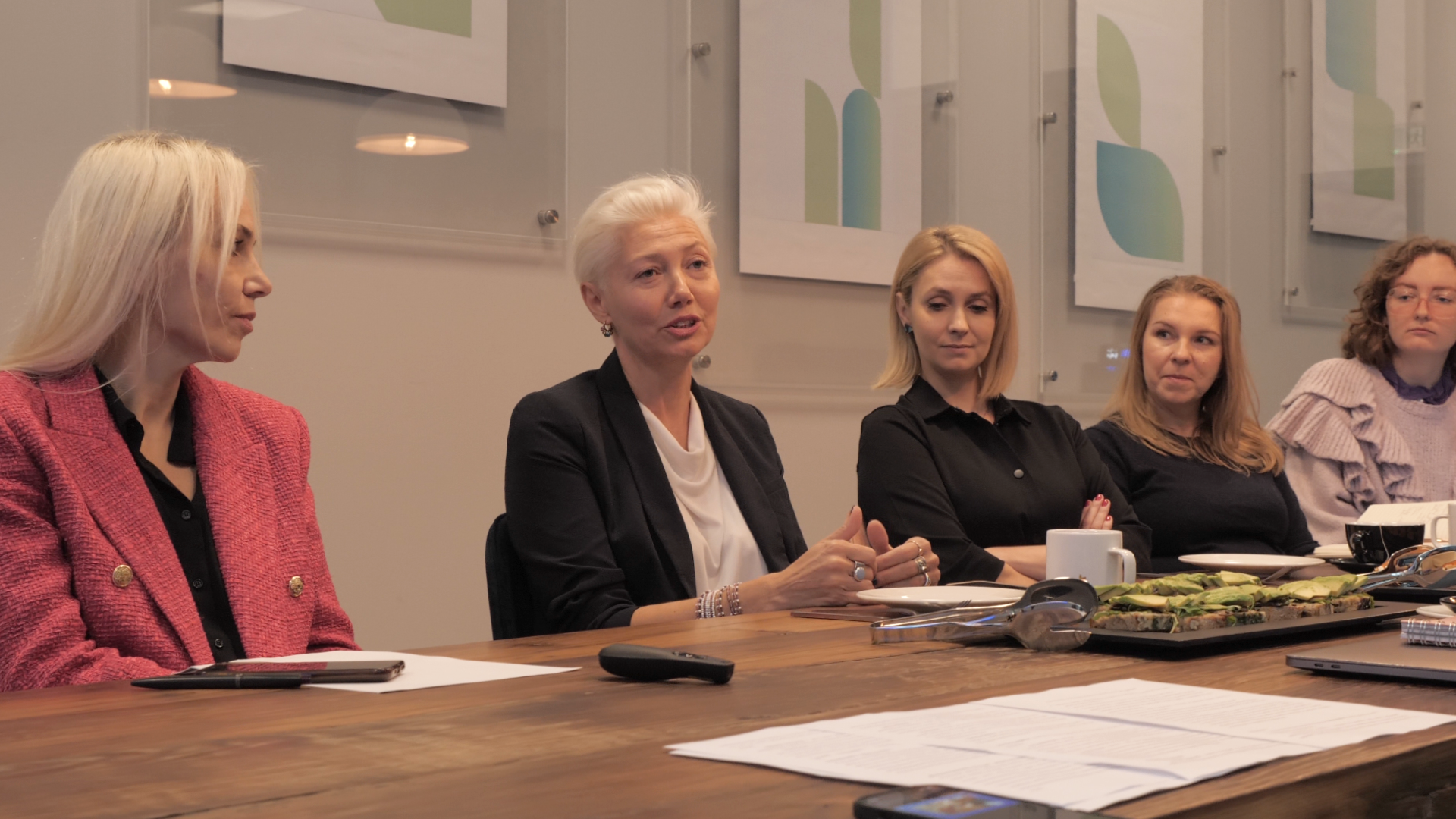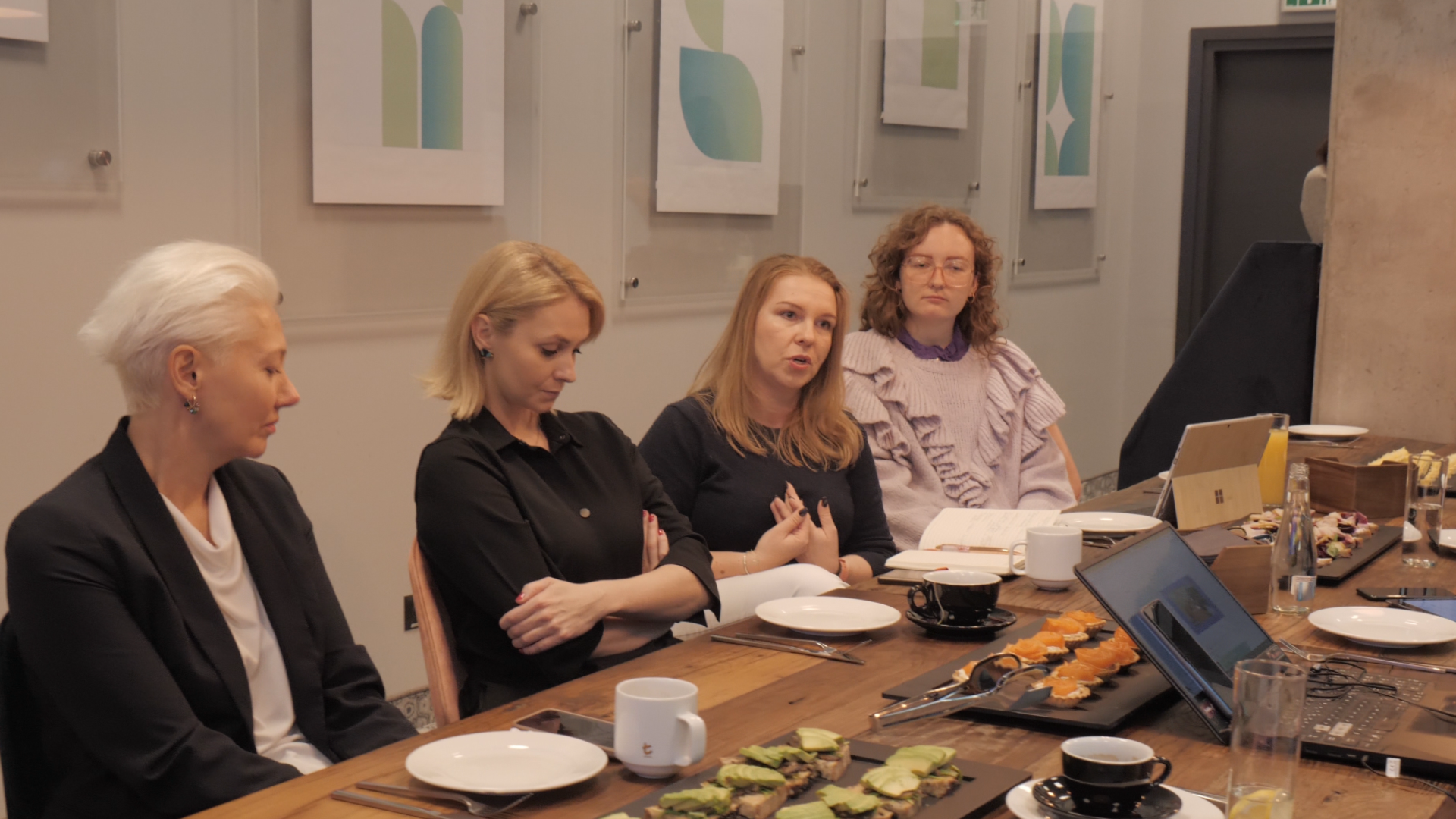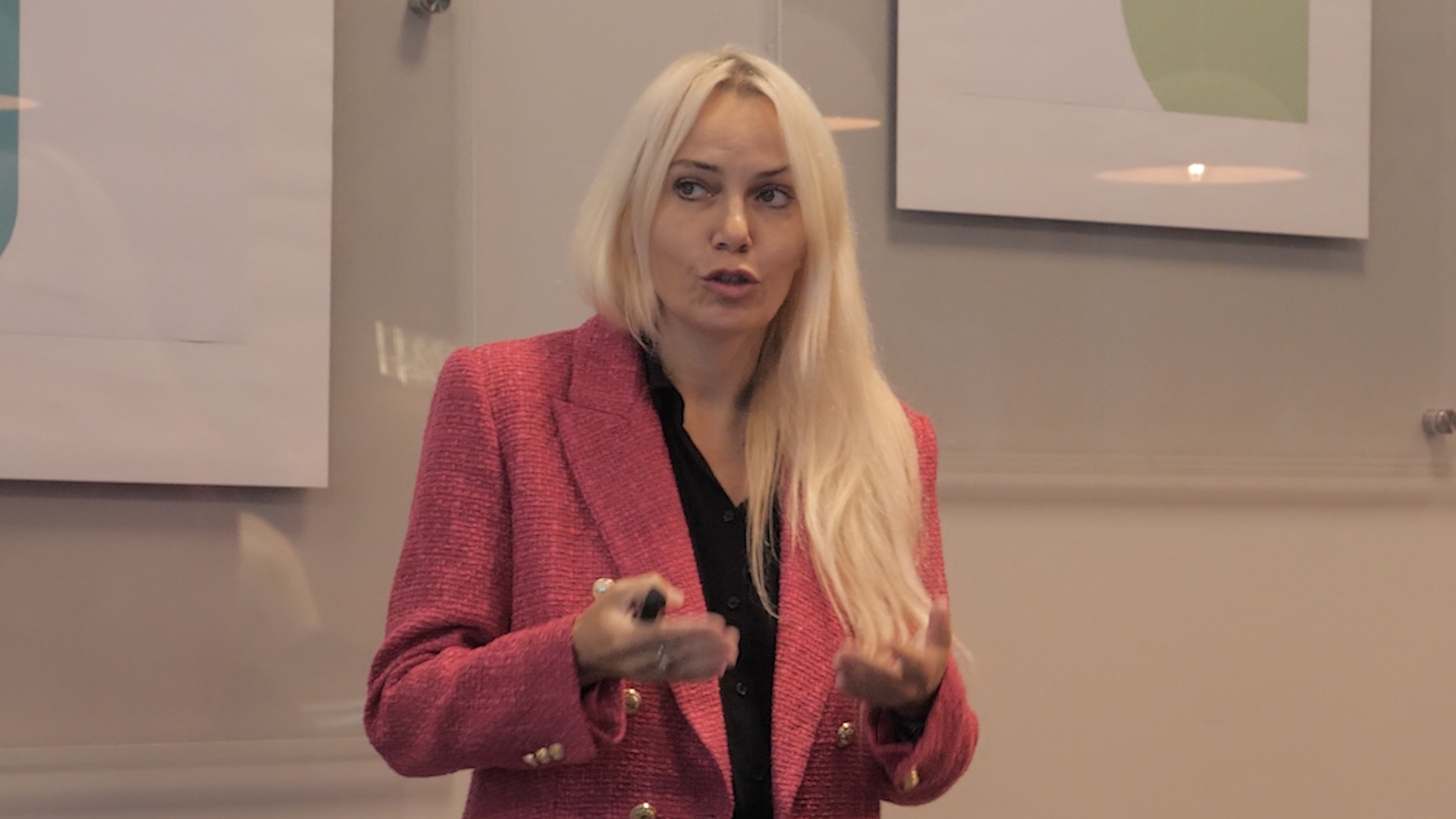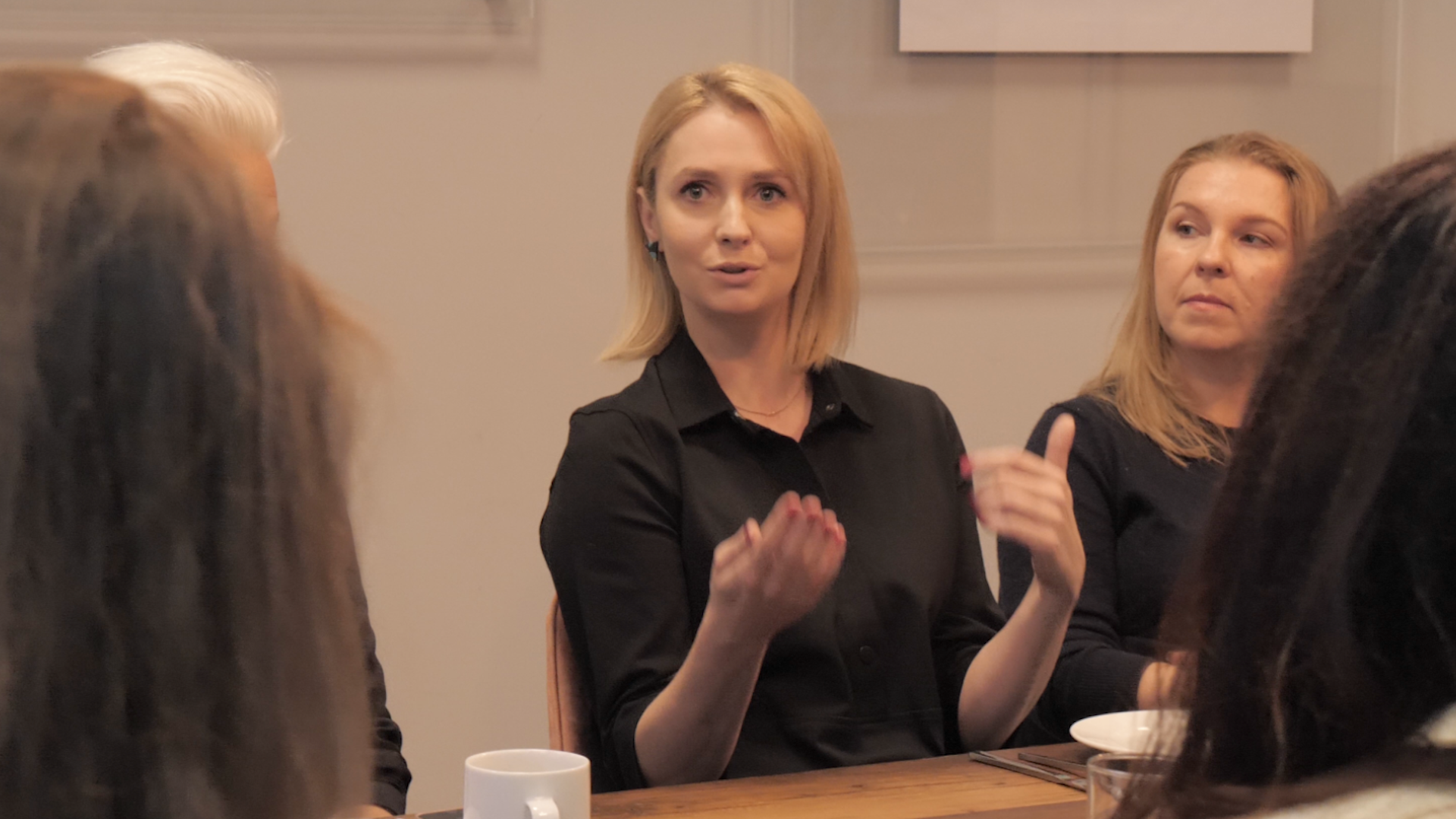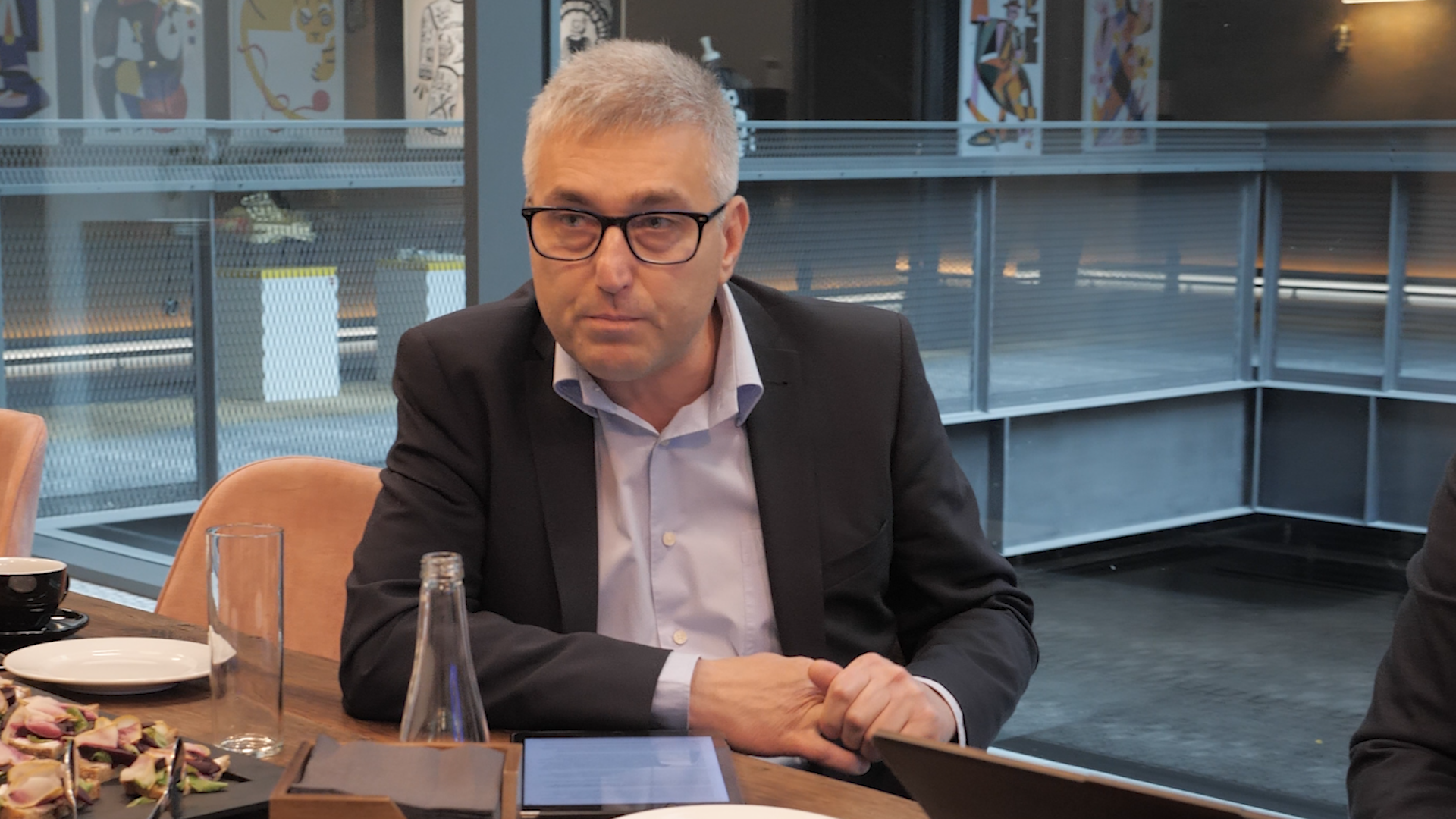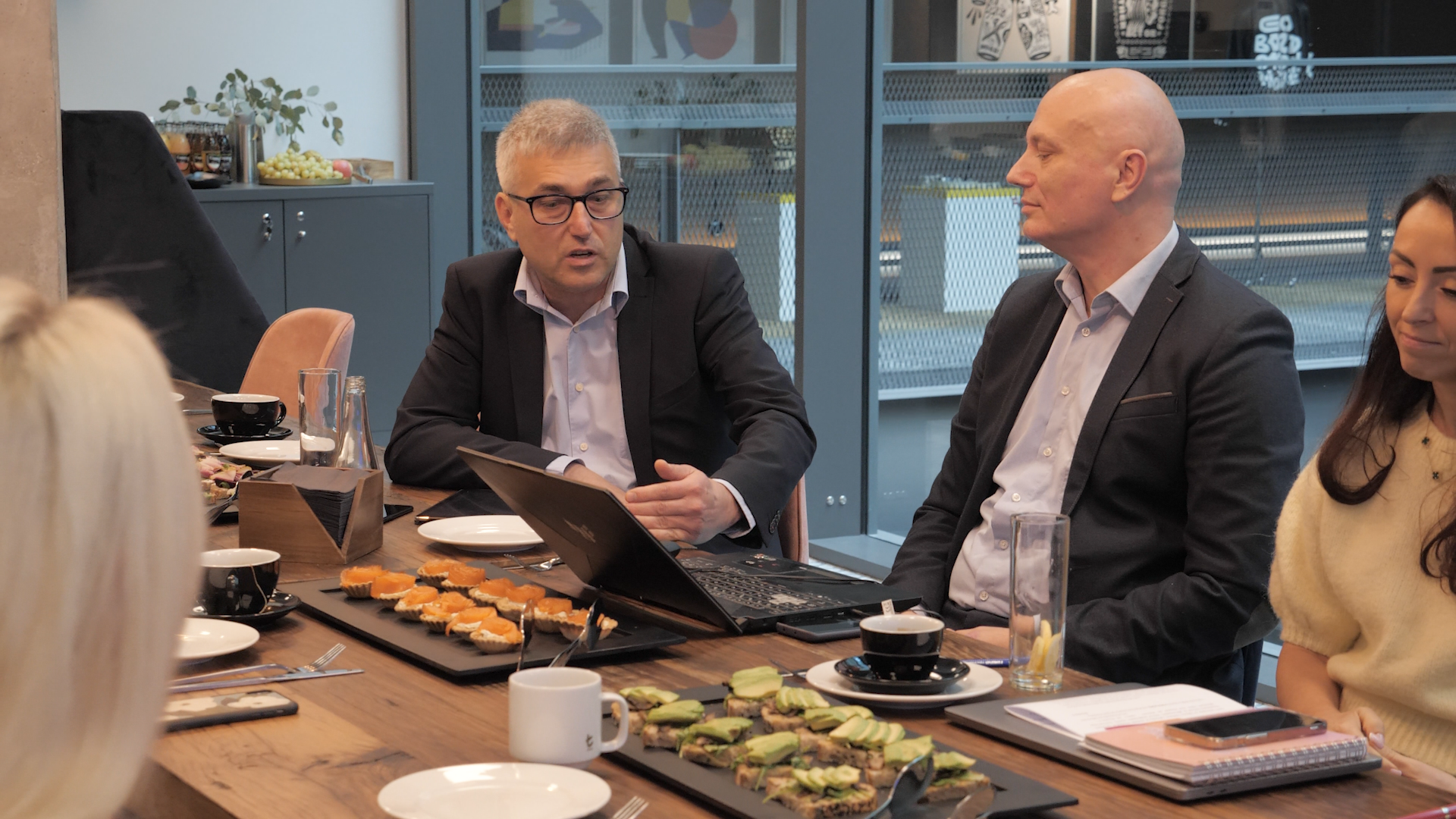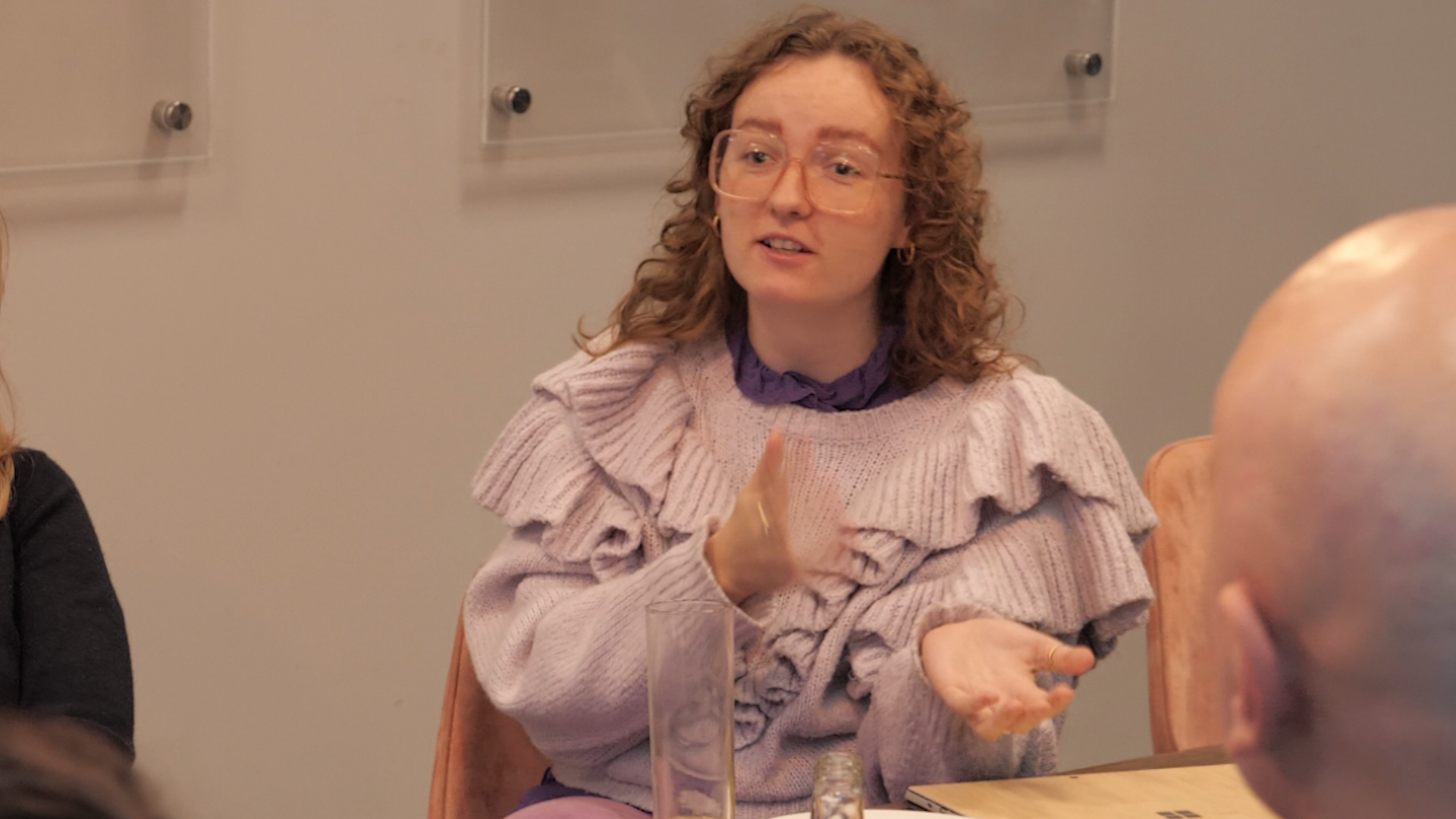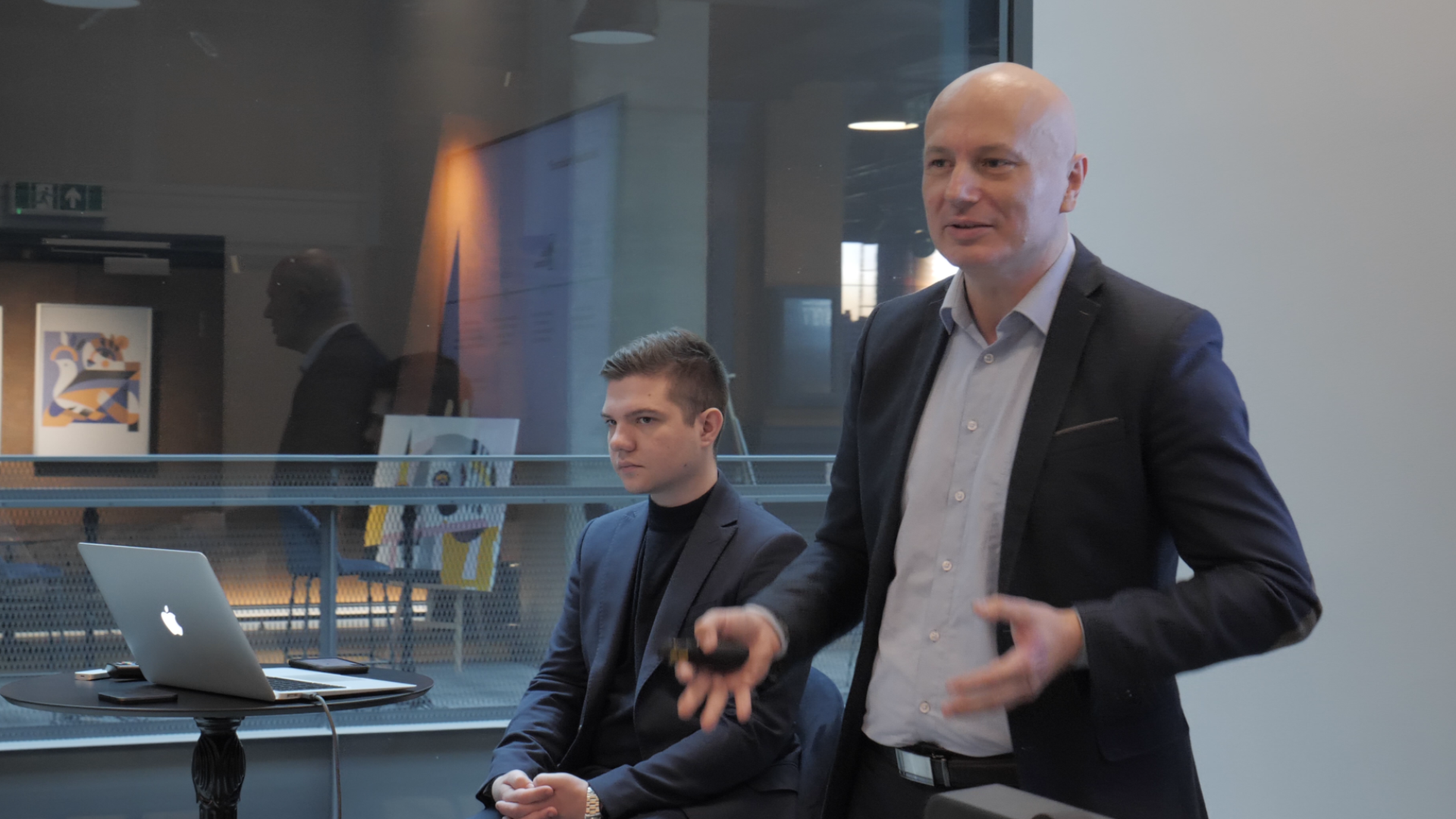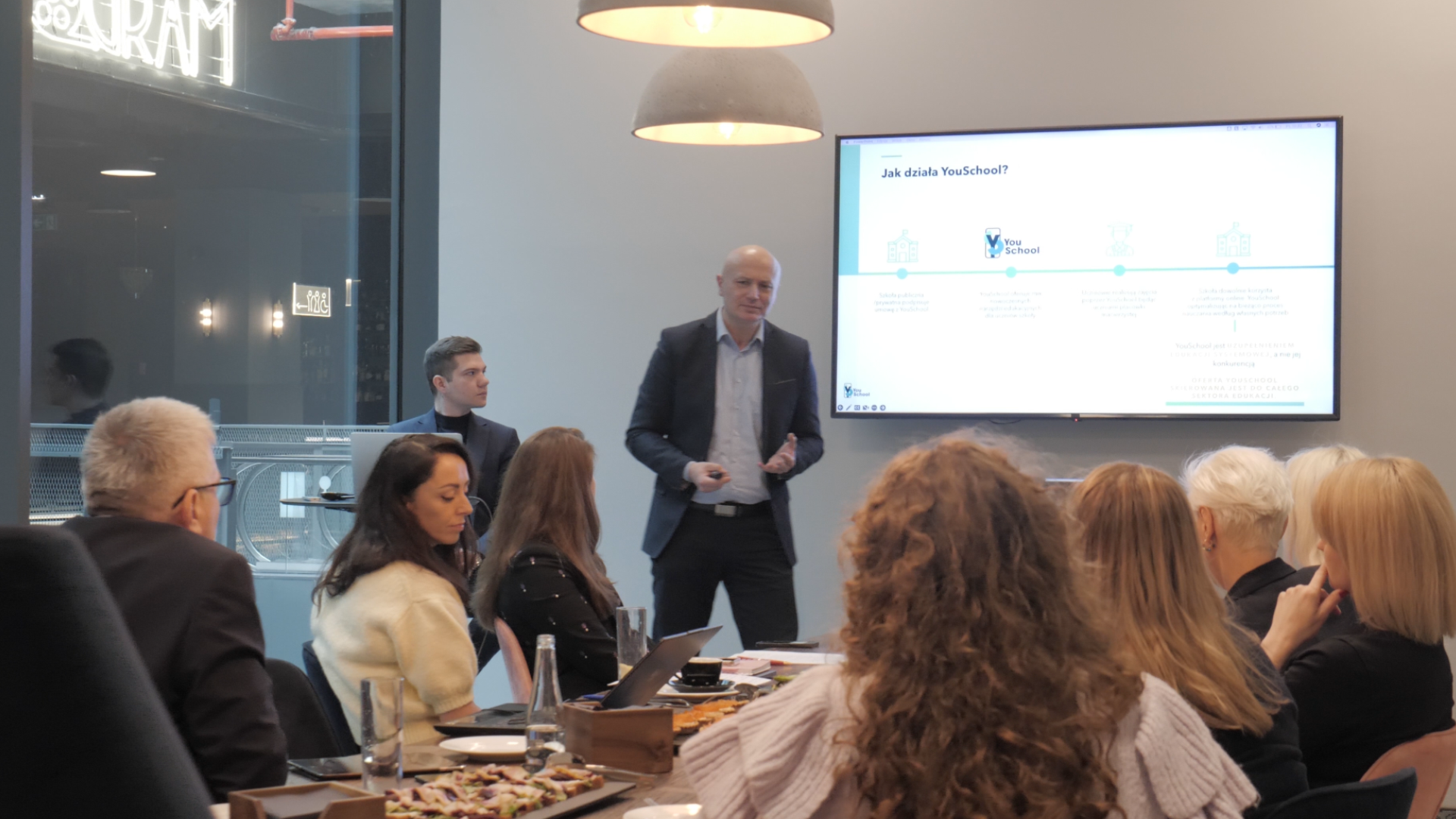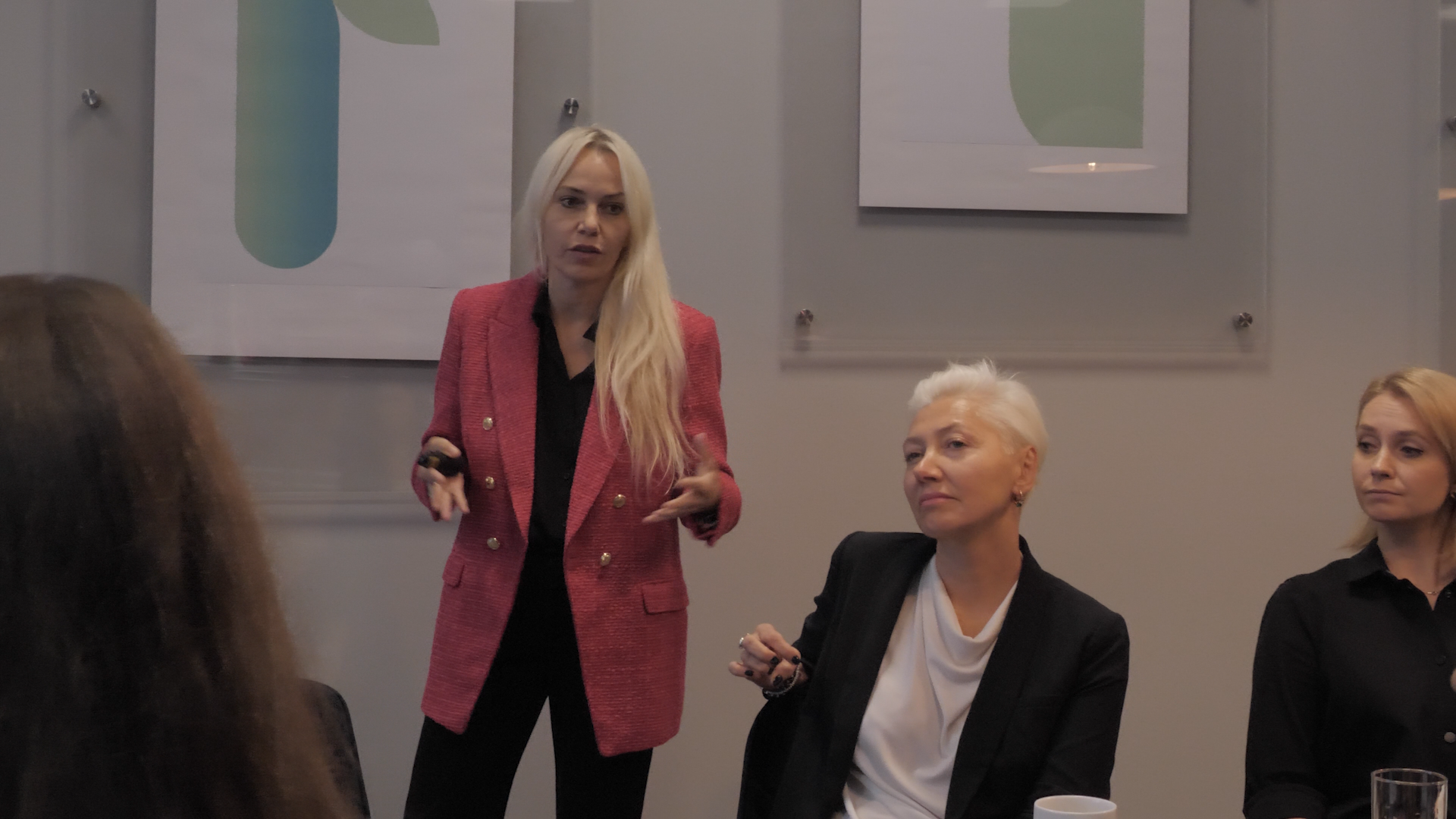CONFERENCE: “TECHNOLOGIES IN EDUCATION. NEW PROSPECTS AND CHALLENGES”
The following speakers attended the meeting: Jowita Michalska (Digital University), Martyna Smak (Synerise), Beata Galas (Google), Pamela Krzypkowska (Microsoft), Dr. Tomasz Tokarz (YouSchool), Agnieszka Olszewska (Edison Primary School) and Wojciech Dąbrowski (EduTech Fund). The keynote Speaker of the conference was Prof. Marlena Plebańska (Vistula Academy of Finance and Business), and Annemarie Vanlangendonck (MISO) – the moderator.
Technology is changing education, and education is changing technology - this is a real revolution that is happening before our eyes. E-learning, Big Data, Artificial Intelligence, personalization of education, the need to learn the competencies of the future will forever change the education process of next generations. What opportunities and prospects for the development of technology in education do universities, schools, NGOs, investment funds, startups and the Big Tech sector face?
The conference was opened by Prof. Marlena Plebańska with a presentation entitled “Digital Technologies in Education, Unraveling the Mystery of Science and the Magic of the World.” The speaker outlined the trends present on the education market, i.e. advancing robotization and digitization, industrial revolution or the knowledge economy. According to the speaker, “it is important for teachers to trust technology in education. It is important to improve teachers' digital competence all the time and help them find their way in the new galloping reality,” she stressed. She added that looking at the professions of the future, one thing we know is that there will be professions very much related to digitization, i.e., for example, a specialist in AI and machine learning or a specialist in digital transformation.
Education is one of the largest sectors of the economy, accounting for more than 6 percent of the global GDP, and is projected to grow by $7.3 trillion by 2025. The global size of the EdTech sector has grown by $63 billion over pre-COVID-19 pandemic estimates.
The discussion was opened by Jowita Michalska of the Digital University, noting that in Poland digital technology is already at a very high level, but a certain trauma has been created in society by the compulsion to use technology without first transforming thinking. “First steps are always unfortunate, and we are just at this stage. It's good to learn about the future by observing the past. On the one hand, we already have access to technology that we can use, but on the other hand we are very distanced and distrustful to get involved in its development,” the speaker said.
“Moving, virtually overnight, education to the cloud during the pandemic has become a new reality,” added Beata Galas of Google. Technology is changing extremely fast, but it is important to emphasize that it is not the enemy of education. “If we don't improve our digital competence all the time, we will fall behind. We should not say that technology was only used in online teaching during the pandemic, because it is also used in traditional classroom teaching. It is known that it will not replace a notebook or a teacher, but it will be a support to make teaching more effective.” Technology is not supposed to replace the teacher, it is supposed to support learning and cause it to be more effective.
Marlena Plebańska noted that crucial to technological development is, first of all, improving digital competences of teachers. As they are not “digital natives,” this is a long and complicated process. “It is easy to transfer knowledge or acquire skills, but it is more difficult to change attitudes. It is necessary to rely on projects in which teachers not only learn about a particular platform or application, but are also assisted in implementing those skills when working with their students,” she added.
“We need to change the perspective of thinking about artificial intelligence, because it is a new everyday reality that is supposed to facilitate a lot, not hinder,” Pamela Krzypkowska of Microsoft said. A good piece of information is contained in the Digital Poland report according to which Poland is the leader in Eastern Europe, in terms of specialization in artificial intelligence. “We have these specialists - people who are able to introduce artificial intelligence to teachers and students, so it is crucial to programmatically introduce AI to the entire education sector in Poland.”
Martyna Smak, meanwhile, stressed that Synerise has been focusing on market education and social initiatives from the very beginning. Their proprietary AI Schools program is an expression of corporate social responsibility, concern for the quality of the economy, as well as the labor market. Their goal is to activate both teachers of science disciplines and students. Countries that invest in AI education for children and young people today will soon be among the best developed countries. “In our case, it was a huge dream for children to have an individual development path. Imagine being able to monitor a student's focus throughout the classroom using artificial intelligence. We would then be able to spot those who - for example - are great at math and recommend the direction of the best path such a student can achieve. On the other hand, we could study what form of learning is the most effective for a given student.”
“From my point of view, education is a specific investment process. It is our duty to look for solutions that will allow us to use all the available tools,” Wojciech Dąbrowski (EduTech Fund) noted. The education technology market is currently worth $254 billion and is growing by 15-20 percent annually. “Learning reinvented” is learning created anew - a redefinition of the entire concept of education, that is, of the approach to an individual, to include. The creation of generic educational programs no longer makes sense, the natural direction of development is to move completely to the creation of fully personalized tools.
Tomasz Tokarz of YouSchool noted that it was crucial to make excellent programs with a high level of individualization available to students nationwide - at no extra charge. “It is necessary to create a space for students from small towns who don't have much freedom to choose a school in their area that matches their preferences. By creating nationwide solutions, we give students access to a personalized path. It's often said that technology distances us from people and has a negative impact on cooperation, but if you look at a traditional school it is the students who sit at desks and follow instructions with a ban on communicating with one another. Is that the ideal of cooperation?” - the speaker concluded.
“According to the research, 80% of teachers had no experience with remote education and e-learning before the pandemic. So imagine what a huge challenge it was for teachers to switch and still manage their work in an absolutely unfamiliar environment,” Agnieszka Olszewska of Edison Primary School remarked. The added value of the pandemic is certainly an increased digital competence of teachers, who were forced to acquire new knowledge on their own. The pandemic's timing was ideal for carrying out an education revolution. “New technologies are neither good nor bad. It is up to our intentions and competencies to determine how they will be used and whether this will serve societies or cause danger,” she concluded.
The last part of the conference was devoted to a presentation by Agnieszka Olszewska and Tomasz Tokarz on the new YouSchool platform. It is a modern, free self-learning platform that enables to start compulsory schooling in a friendly and effective way. “We believe that every child has the right to a free, modern, high-quality education. Unfortunately, today our children function within the framework of traditional system education,” the guests pointed out. YouSchool is based on four pillars of knowledge acquisition. Each child can individually decide when, how and at what pace he or she wants to learn. Within the lessons of each core curriculum subject, he/she has four differentiated materials at his/her disposal. After passing all the lessons in a given subject, the student arranges an online exam to test his or her knowledge. It is up to the student to decide when he or she finishes the school year.


